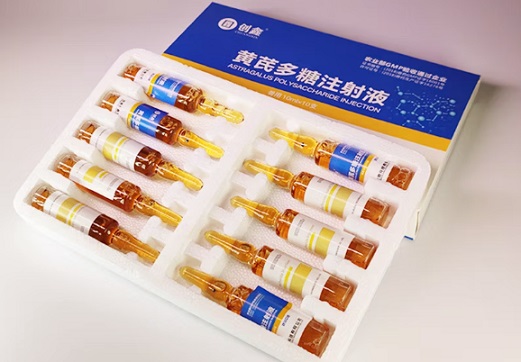Nikhil Prasad Fact checked by:Thailand Medical News Team Jan 04, 2025 3 months, 1 week, 2 days, 6 hours, 34 minutes ago
Medical News: Viral myocarditis, a condition characterized by inflammation and damage to the heart muscle, poses a significant threat to young adults. With global cases estimated at 10 to 20 per 100,000 individuals, its prevalence is expected to rise significantly by 2030. Often caused by viral infections like Coxsackie B, this condition results in necrosis of cardiac cells, immune responses, and extensive heart damage. Despite advancements in antiviral and immunosuppressive therapies, effective treatment remains elusive, highlighting the need for innovative approaches.
 Astragalus Injection Offers Hope for Treating Viral Myocarditis
Traditional Medicine Steps Up
Astragalus Injection Offers Hope for Treating Viral Myocarditis
Traditional Medicine Steps Up
Traditional Chinese medicine (TCM) has played a pivotal role in healthcare, particularly during the COVID-19 pandemic. Astragalus membranaceus, a key herb in TCM, has gained attention for its therapeutic potential. This Medical News report delves into a study that evaluates the efficacy of Astragalus injection in combating viral myocarditis.
What is Astragalus Injection
Derived from the Astragalus plant, the injection boasts bioactive compounds known to boost immunity and combat viral infections. Astragalus has been used in TCM for centuries to restore energy, alleviate symptoms of illness, and promote overall health. Recent research highlights its potential to reduce inflammation, enhance immune responses, and protect heart tissue from viral damage.
The Study and Key Findings
Researchers from the Affiliated Hospital of Nanjing University of Chinese Medicine, Nanjing Hospital of Chinese Medicine-China, and OMNI Research Group at the University of Ottawa conducted a systematic review and meta-analysis. They aimed to assess the effectiveness of Astragalus injection in treating viral myocarditis.
The study analyzed data from 26 randomized controlled trials involving 2,793 patients. Participants were divided into two groups: one received standard treatment, while the other was administered Astragalus injection alongside standard therapy. The results were promising:
-Increased Effectiveness: Patients receiving Astragalus injection had a 92.79% effectiveness rate compared to 77.71% in the control group.
-Improved Biomarkers: Significant reductions in cardiac biomarkers such as creatine kinase (CK), CK-MB, lactate dehydrogenase (LDH), and cardiac troponin I (cTnI) were observed. These biomarkers are crucial indicators of heart muscle damage.
-Enhanced ECG Results: Astragalus injection improved electrocardiogram readings, reflecting better heart function.
-Reduced Inflammation: The therapy significantly lowered levels of inflammatory enzymes, supporting faster recovery.
Implications of the Findings
The study underscores the potential of Astragalus injection as a supplementary treatment for viral myocarditis. By targeting inflammation and promoting heart tissue repair, it offers a dual-action benefit that conventional treat
ments alone may not achieve. Moreover, its natural origin aligns with patient preferences for holistic and integrative care.
Challenges and Future Directions
While the findings are encouraging, limitations exist. Most studies included in the analysis were conducted in China, raising concerns about location bias.
Additionally, variations in study designs and treatment durations highlight the need for standardized protocols. Future research should focus on larger, diverse populations to validate these results.
Exploring advanced formulations, such as sustained-release or nanotechnology-based versions of Astragalus injection, could enhance its efficacy and patient compliance. Long-term studies are also essential to evaluate safety and effectiveness over extended periods.
Conclusion
Astragalus injection emerges as a promising ally in the fight against viral myocarditis. By improving cardiac health markers and overall recovery rates, it bridges the gap between traditional and modern medicine. However, further research is crucial to establish its role in global healthcare strategies.
The study findings were published in the peer-reviewed European Journal of Medical Research.
https://link.springer.com/article/10.1186/s40001-024-02193-9
For the latest on Viral Myocarditis, keep on logging to Thailand
Medical News.
Read Also:
https://www.thailandmedical.news/news/rna-m5c-modification-plays-a-key-role-in-sars-cov-2-induced-myocarditis
https://www.thailandmedical.news/news/guide-to-myocarditis-a-dangerous-heart-condition-affecting-up-to-78-percent-of-covid-19-infected-symptomatic-or-asymptomatic-individuals
